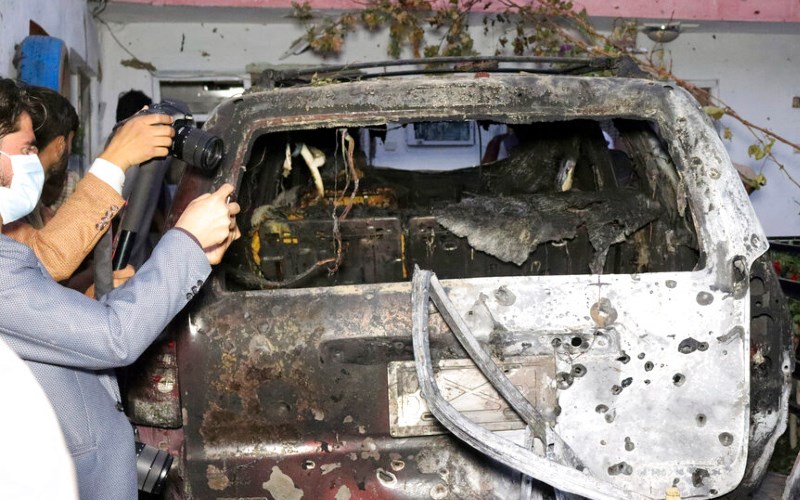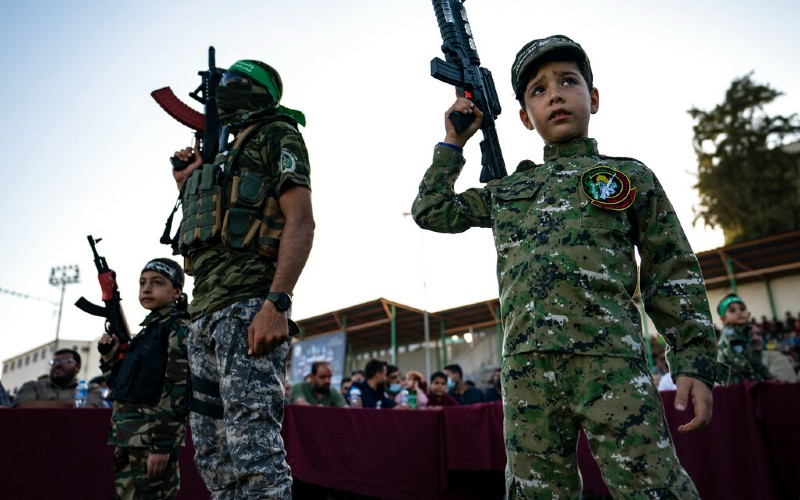Last week, the Pentagon formally admitted an Aug. 29 strike killed innocent civilians, including an adult aid worker and seven children, not Islamic State terrorists as was claimed.
“I am now convinced that as many as 10 civilians, including up to seven children, were tragically killed in that strike," Marine Gen. Frank McKenzie, who leads U.S. Central Command, said. “Moreover, we now assess that it is unlikely that the vehicle and those who died were associated with ISIS-K or a direct threat to U.S. forces.”
The drone strike came two days after a suicide bomber detonated a bomb vest near a Kabul airport gate that killed 13 U.S. servicemembers and more than 160 Afghans.
 “We will hunt you down and make you pay,” President Biden vowed in a shaky, bizarre White House speech that came eight hours after the explosion.
“We will hunt you down and make you pay,” President Biden vowed in a shaky, bizarre White House speech that came eight hours after the explosion.
According to an Associated Press story at the time, the Pentagon was concerned another suicide bombing was coming and took action because video surveillance showed two men loading explosives into the trunk of a car. A large secondary explosion was evidence that explosives were inside.
One detail noticed by a skeptical public at the time, however, was the Pentagon was not releasing the names of the two suspected ISIS terrorists.
Then came the truth: After it obtained video footage, The New York reported that the Hellfire missile killed Ezmaria Ahmadi, an aid worker for a California-based agency, as well as the man’s nieces and nephews who had gathered around his car in the courtyard when he was returning home.
What was claimed by the Biden administration to be explosives in the truck was canisters of water, the Times reported in its exclusive story that forced the Pentagon to investigate the attack.
Reacting to the Pentagon’s admittance to killing civilians, Fox News host Pete Hegseth told the news network he believes there was “righteous intentions” to keep Americans safe after the airport bombing, with no intention to harm civilians.

“What I do put on them, though, are the conditions that they willfully created, which created an ‘over-the-horizon’ capacity that was utterly insufficient and led to this type of tragic situation happening,” Hegspeth, a U.S. Army veteran, said. “That's on them and there's been no accountability for it.”
Hegspeth’s mention of “over-the-horizon capability” was referring to the Pentagon’s claim last month that, after U.S. troops and the CIA leave Afghanistan, it could monitor and respond to terror threats in Afghanistan from other military installations in the Persian Gulf area.
“I can see how it happened,” Bob Maginnis, a retired U.S. Army lieutenant colonel now at the Family Research Council, says, “because we pulled out our intelligence assets from the area.”
The only way to “truly” confirm a terrorist target in Kabul at the time, Maginnis advises, would be if numerous intelligence sources were collaborating and agreed on what their best analysis suggests. That obviously was not possible and did not happen, he says, and the blame belongs with the Biden administration.







